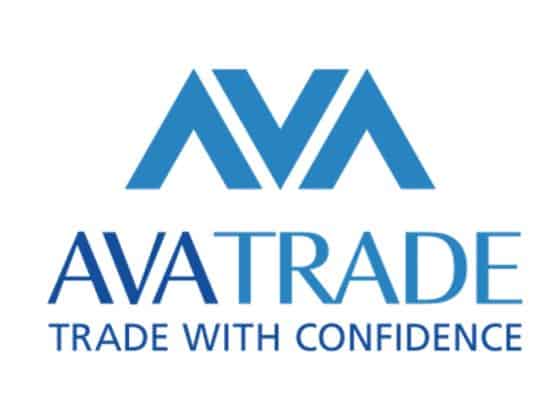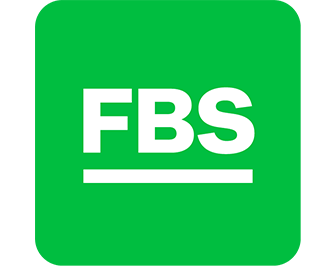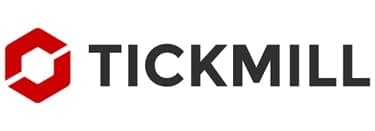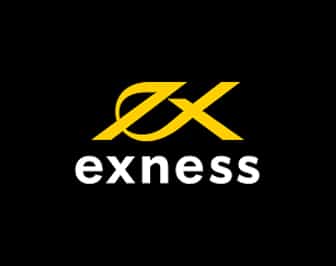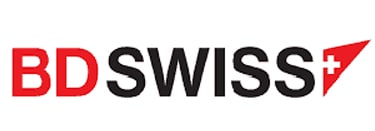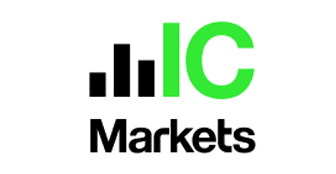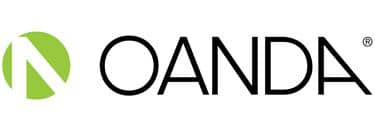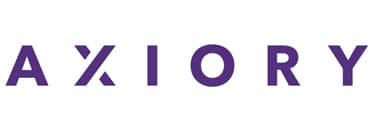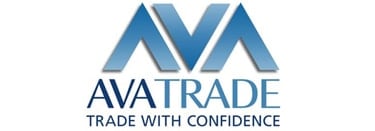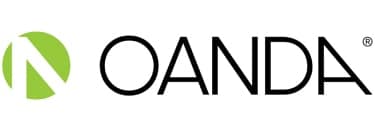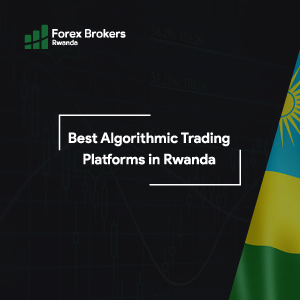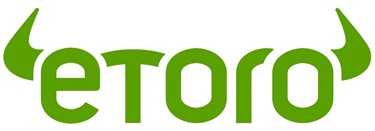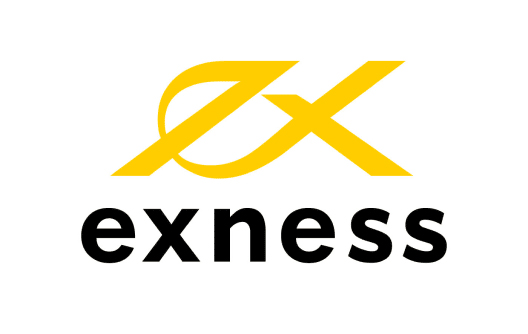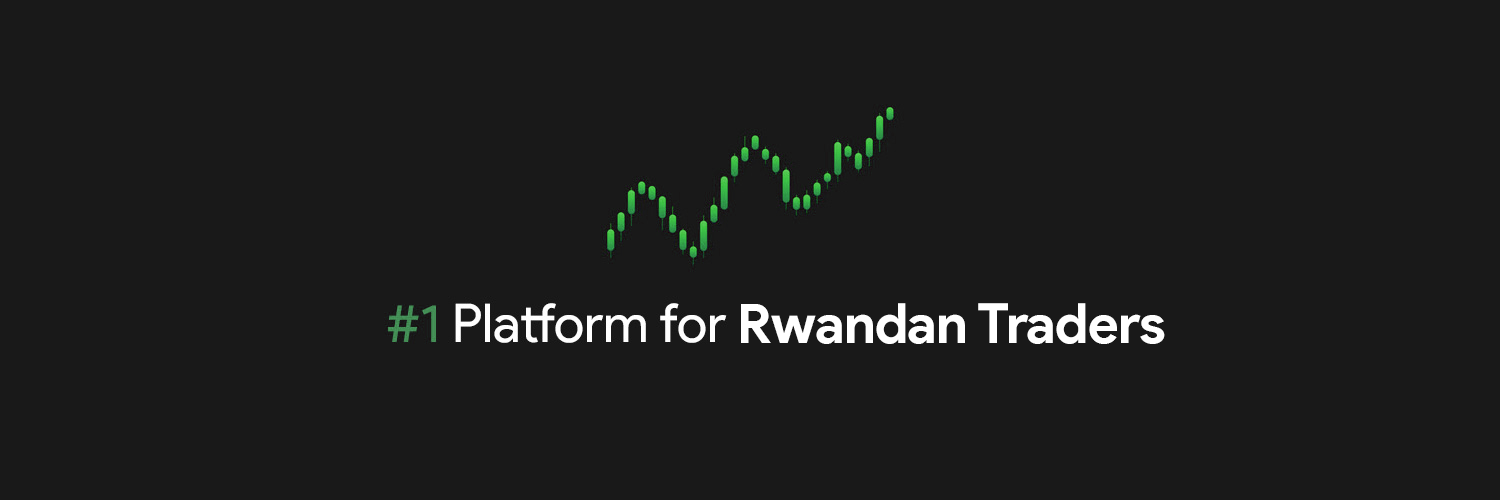
7 Best Algorithmic Trading Platforms in Rwanda
The 7 Best Algorithmic Trading Platforms in Rwanda revealed. We tested and verified the best trading platforms with a minimum deposit for Rwandan Traders.
This is a complete list of the best algorithmic trading platform brokers in Rwanda.
In this in-depth guide you’ll learn:
- What are algorithmic trading platforms?
- Who are the top RWF algorithmic trading platforms?
- How to choose a forex broker – Compare them side by side by tightest spread, best scalping conditions, and lowest minimum deposits.
- Which brokers are best for beginner traders?
- Which brokers offer a sign-up bonus to first-time traders?
And lots more…
So if you’re ready to go “all in” with the top algorithmic trading platforms for Rwandans…
Let’s dive right in…
10 Best Forex Brokers in Rwanda for 2024
Rank
Broker
Review
Regulators
Min Deposit
Official Site
- Louis Schoeman
7 Best Algorithmic Trading Platforms in Rwanda
- eToro – Overall, Best Broker with Algorithmic Trading Platform
- E*TRADE – Best MT4 and MT5 Trading Accounts
- MetaTrader 4 – Top Platform in Rwanda
- MetaTrader 5 – Best Platform for RWF accounts
- IG ProRealTime and ProOrder – Best Trading Strategy
- cTrader – Best Education for Beginner Traders
- Webull – Commission-Free Online Stock Trading
What is an Algorithmic Trading Platform?
An algorithmic trading platform refers to a software or online platform that empowers traders to develop, assess, and implement automated trading strategies using predetermined rules and algorithms. This platform facilitates the seamless execution of trades without the need for manual intervention. Traders can utilize these platforms to design and backtest their strategies, ensuring their efficacy before deploying them in live trading environments. By leveraging algorithmic trading platforms, traders can enhance their trading efficiency, take advantage of market opportunities, and potentially improve their overall trading performance.
Best Trading Apps in Rwanda (2024) – Comparison
| 🥇 Broker | ✔️ Algorithmic Trading Platform? | 💳 RWF Deposits/Withdrawals | 💵 Micro Account Offered? | 📞 Rwandan-Based Customer Support | 👉 Open An Account |
| 1. eToro | Yes | Yes | No | No | 👉 Open Account |
| 2. E*TRADE | Yes | No | Yes | No | 👉 Open Account |
| 3. MetaTrader 4 | Yes | Yes | Yes | No | 👉 Open Account |
| 4. MetaTrader 5 | Yes | Yes | No | No | 👉 Open Account |
| 5. IG ProRealTime and ProOrder | Yes | Yes | Yes | No | 👉 Open Account |
| 6. cTrader | Yes | Yes | No | No | 👉 Open Account |
| 7. Webull | Yes | Yes | Yes | Yes | 👉 Open Account |
1. eToro
Min Deposit
USD 50
Regulators
CySec, FCA
Trading Desk
None
Crypto
Yes
Total Pairs
47
Islamic Account
Yes
Trading Fees
Low
Account Activation Time
24 Hours
* Etoro has lowered the amount of the minimum FTD to $ 50 for the following countries: Germany, Austria, Netherlands, Norway, UK, Ireland, Spain, Italy, Sweden, Switzerland.
Overview
eToro has become incredibly popular, attracting more than 12 million users globally. It stands out for its diverse portfolio, which includes a wide range of assets such as stock indexes, individual company stocks, cryptocurrencies like Bitcoin, commodities, and ETFs (Exchange-Traded Funds). This comprehensive offering, especially in the ETF space, makes it a prominent choice in the market.
While eToro is not solely focused on algorithmic trading, it incorporates technology that enables automated trading services. One of the notable features is the Copy Portfolios and Copy Trading functionality. With these features, users can freely replicate the portfolios of other eToro users, allowing them to automatically copy the trades and investment strategies of successful traders.
Copying another user’s portfolio is a seamless process, taking only seconds to execute. eToro customers have the flexibility to choose the amount of their account balance they want to invest in a particular portfolio. The system automatically carries out the necessary transactions to replicate the portfolio, resembling the functionality of an algorithmic trading system.
Rwandan traders have access to a variety of investment strategies on eToro, including dividend investing, growth investing, value investing, and commodities investing. Moreover, Rwandan traders also have the option to replicate the portfolio of another investor, further expanding their investment opportunities
2. E*TRADE

Overview
For Rwandans who are new to algorithmic trading, grasping the intricacies of the process and understanding the technical terms can be challenging.
To facilitate a quick and effortless learning experience, the ETRADE platform emerges as the ideal choice. ETRADE offers a comprehensive range of educational resources that can help you comprehend various algorithmic techniques, their applicability, and the diverse scenarios in which they can be employed.
E*TRADE stands out for numerous reasons, making it a fantastic option for exploration. It enables you to trade stocks, options, and ETFs without incurring any commissions, all while providing user-friendly tools. Additionally, their smartphone app offers a wide array of services, surpassing the sophistication of many competitors.
The software provides multiple avenues for utilization, allowing you to evaluate your performance, set up advanced price alerts, and employ unique order types. However, it’s important to note that the platform’s simple interface is not extended to its website, which can be considered a notable drawback.
3. MetaTrader 4

Overview
Forex trading brokers such as Exness, Pepperstone, Plus500, and EasyMarkets rely on MetaTrader 4 (MT4) as their primary trading platform. Within MT4, traders have the ability to install an automated trading system known as an Expert Advisor (EA), which executes trades automatically based on predetermined rules and market conditions. MT4 has gained substantial popularity and is widely recognized as a preferred trading platform.
Robo-trading systems employ algorithms to analyze and monitor the market, continuously searching for trading opportunities on behalf of investors. Expert Advisors within MT4 can alert Rwandan traders to potential gains or losses based on predefined trading criteria or regulations.
MT4 utilizes MetaQuotes Language 4 (MQL4), a programming language that closely resembles C. Once one becomes proficient in MQL4, creating personalized Expert Advisors becomes a straightforward process.
Given the extensive popularity and longevity of MT4, it boasts one of the largest markets for trading platforms. Furthermore, as C ranks as the fifth most popular language on GitHub, it is expected that a considerable number of MQL4 developers are proficient in or capable of learning MQL4.
4. MetaTrader 5

Overview
MetaTrader 5 (MT5) represents a notable advancement from its predecessor, MetaTrader 4 (MT4), offering improved features such as enhanced backtesting capabilities and expanded market access to new asset classes. Unlike MT4, MT5 is a multi-asset platform that enables users to trade derivatives like shares and futures, which require access to centralized exchanges.
MetaQuotes Language 5 (MQL5), the programming language used in MT5, is based on C++, in contrast to MQL4 (based on C) utilized in MT4. As an object-oriented language, C++ enjoys greater popularity than C (which ranks as the 4th most popular language on GitHub) and is associated with higher code quality compared to MQL4. Consequently, Expert Advisors created for MT4 cannot be used directly in MQL5 code due to MetaQuotes’ decision to provide MQL5 instead of MQL4.
MT5 incorporates a comprehensive built-in marketplace tab, offering a streamlined experience for users. In MT5, all applications are conveniently accessible within a single tab, integrated into the platform. This differs from MT4, where users often need to navigate through various external websites to obtain the desired MT4 Expert Advisor.
5. IG ProRealTime and ProOrder

Overview
ProOrder is a cutting-edge technology developed by ProRealTime, offering backtesting and automated trading capabilities. To access the platform, users simply need a web browser and an internet connection. ProOrder provides multiple avenues for automated trading, including the ProRealTime Marketplace, the Wizard, and the Code.
The ProOrder Wizard empowers users to establish and customize their trade criteria without the need for coding. Through convenient drop-down options, traders can easily set conditions, targets, and stop-losses for order entry.
For those seeking more advanced automation, a code generator within ProOrder generates the necessary code to achieve specific goals and requirements. The ProBuilder programming language enables users to create their own custom automation. ProBuilder bears a strong resemblance to Visual Basic.
However, it’s worth noting that the ProRealTime user base is smaller compared to other platforms such as MT4, and Visual Basic is gradually losing popularity. This might pose challenges in finding adequate resources to fulfill specific development requirements.
6. cTrader

Overview
cTrader is a sophisticated electronic communication network (ECN) trading system specifically designed for individual investors. One of the key strengths of the platform lies in its exceptional charting capabilities.
With cTrader’s synchronous execution, order queues are eliminated, and trading slippage is minimized. This feature allows for the simultaneous execution of multiple orders, employing the same algorithmic trading capabilities utilized for auto trading in cTrader’s cBots and MetaTrader’s EAs.
Loading cBots created by other cTrader users and commencing trading is a breeze. By simply clicking the play button through the Plug and Play function on your computer, you can immediately start trading. This eliminates the need for lengthy installation procedures that were previously required.
For access to trading robots and additional resources, the ‘Automate’ option on the cTrader website provides a gateway. Users can also download more trading robots through cTDN.
7. Webull

Overview
Webull is an ideal platform for algorithmic traders seeking commission-free trading across various platforms. With Webull, algorithmic trading can be executed on multiple platforms, including MT4, MT5, and others.
Webull offers well-designed platforms that allow for placing orders in various ways. Additionally, the platform imposes minimal fees and commissions, leading to a higher overall profit margin.
While Webull’s range of automated platforms can benefit many algorithmic trading strategies, there are certain limitations to consider. Webull exclusively offers stocks, indices, and options for trading, which means commodities and currencies cannot be traded using automated trading strategies on this platform.
When it comes to account management, Webull solely accepts bank transfers for depositing and withdrawing funds. This streamlined process ensures that creating an account is quick and straightforward.
What is Algorithmic Trading and How does it work?
Traders opt for algorithmic trading for several compelling reasons:
Speed and Efficiency:
Algorithmic trading enables swift and efficient trade execution, surpassing manual trading methods. Automated systems can swiftly analyze market conditions and execute trades promptly, potentially seizing opportunities that human traders might miss.
Elimination of Emotional Bias:
By relying on pre-defined rules and algorithms, algorithmic trading eliminates emotional influences from trading decisions. This prevents impulsive and irrational trading behaviors driven by fear, greed, or other emotions.
Consistency:
Algorithmic trading ensures the consistent execution of trading strategies. Trades are executed according to predetermined rules, eliminating human errors or inconsistencies.
Backtesting and Optimization:
Algorithmic trading platforms often offer backtesting capabilities, enabling traders to test their strategies using historical data. This facilitates evaluating strategy performance and making necessary adjustments for optimization.
Diversification and Risk Management:
Algorithmic trading allows for the simultaneous execution of multiple trading strategies across different markets and instruments. This diversification spreads risk and reduces exposure to a single market or asset.
Increased Market Coverage:
Algorithmic trading enables monitoring and trading across multiple markets and timeframes simultaneously. This widens the range of opportunities and potentially enhances the likelihood of profitable trades.
Reduced Human Error:
Automated systems eliminate the potential for human errors, such as incorrect order placement or calculation mistakes. This results in more accurate trade execution and improved overall performance.
Scalability:
Algorithmic trading can handle large trade volumes and execute trades across multiple accounts concurrently. This scalability is particularly beneficial for institutional traders or those dealing with substantial trading volumes.
24/7 Trading:
Algorithmic trading systems operate continuously, even when traders are not actively monitoring the markets. This allows for capturing trading opportunities across different time zones and ensures trades can be executed around the clock.
It is crucial to note that while algorithmic trading offers numerous benefits, it requires careful strategy development, testing, and monitoring. Traders should possess a solid understanding of the markets and technical analysis principles to design effective algorithms and mitigate potential risks.
Advantages of Automated Trading Systems

Automated trading systems provide several advantages to traders:
Speed and Efficiency:
Automated trading systems can execute trades at high speeds, reacting to market conditions and opportunities faster than human traders. This speed can be critical in capturing price movements and taking advantage of time-sensitive trading opportunities.
Elimination of Emotional Bias:
Automated trading systems remove human emotions from the trading process. They strictly adhere to pre-defined rules and algorithms, eliminating the potential for emotional decision-making based on fear, greed, or other biases.
Consistency:
Automated trading systems execute trades consistently according to predetermined rules. They avoid inconsistencies or deviations caused by human error or inconsistency in following a trading strategy.
Backtesting and Optimization:
Automated trading systems often provide backtesting capabilities, allowing traders to test their strategies on historical data. This helps in evaluating the performance of the strategy, identifying strengths and weaknesses, and making necessary adjustments for optimization.
Diversification and Risk Management:
Automated trading systems enable traders to diversify their portfolios by executing multiple strategies simultaneously across different markets or instruments. This diversification spreads the risk and reduces exposure to a single market or asset.
Improved Order Execution:
Automated trading systems can swiftly execute trades based on pre-set conditions and parameters. They can instantly react to market changes, execute trades at the desired prices, and help avoid slippage or delays often associated with manual order placement.
Enhanced Discipline:
Automated trading systems strictly adhere to predefined rules, ensuring disciplined trading. They help traders stick to their strategies without being swayed by short-term market fluctuations or external factors.
24/7 Market Monitoring:
Automated trading systems can continuously monitor the markets, even when traders are not actively present. They can identify trading opportunities, execute trades, and manage positions around the clock, leveraging global markets and different time zones.
Reduced Human Error:
Automated trading systems eliminate the potential for human errors in trade execution, such as placing incorrect orders or making calculation mistakes. This can result in more accurate and precise trade execution.
Scalability:
Automated trading systems can handle large trade volumes and execute trades across multiple accounts simultaneously. This scalability is particularly advantageous for institutional traders or those dealing with substantial trading volumes.
Disadvantages of Automated Trading Systems

While automated trading systems offer numerous advantages, it is important to consider potential disadvantages as well:
Technical Failures:
Automated trading systems are vulnerable to technical issues such as connectivity problems, power outages, or software glitches. These failures can result in trade execution errors or missed opportunities if the trader is not actively monitoring the system.
Over-Optimization:
Optimizing automated trading systems using historical data can lead to overfitting. Over-optimization occurs when a system is excessively fine-tuned to past data but fails to perform well in real-time trading due to changes in market conditions.
Lack of Adaptability:
Automated trading systems operate based on predetermined rules and algorithms, which may not adapt quickly to sudden market changes, news events, or unforeseen circumstances. This can result in unexpected losses or missed opportunities.
Dependency on Technology:
Automated trading systems rely heavily on technology, including stable internet connections, reliable hardware, and robust software. Any technical issues or system failures can disrupt the trading process and potentially lead to financial losses.
Complex Development and Maintenance:
Building and maintaining a successful automated trading system requires significant technical knowledge, programming skills, and ongoing monitoring. Traders need to invest time and effort in system development, testing, and regular updates to ensure optimal performance.
System Risks and Malfunctions:
Automated trading systems can encounter errors or malfunctions that may lead to unintended trades, excessive order placement, or other undesirable outcomes. These risks require vigilant monitoring and prompt action to mitigate potential damages.
Inability to Account for Fundamental Factors:
Automated trading systems often rely on technical analysis and historical price patterns, which may struggle to incorporate or react to fundamental factors such as economic news, geopolitical events, or policy changes that can significantly impact market dynamics.
Lack of Intuition and Subjectivity:
Automated trading systems operate based on predefined rules and algorithms, lacking the intuition and subjective judgment of human traders. They may not be able to interpret nuanced market conditions or make discretionary decisions based on qualitative factors.
Over-Reliance on Historical Data:
Automated trading systems heavily rely on historical data for backtesting and optimization. However, past performance does not guarantee future results, and market conditions can evolve or shift, making historical data less reliable in predicting future outcomes.
Monitoring and Supervision Requirements:
While automated trading systems can operate independently, they still require regular monitoring and supervision. Traders need to ensure the system is functioning correctly, review performance metrics, and make adjustments as necessary to maintain effectiveness.
Understanding these potential disadvantages can help traders make informed decisions about whether to utilize automated trading systems and how to effectively manage associated risks. It is crucial to have a comprehensive understanding of the system’s limitations and continually monitor its performance.
What must Rwandan Auto Traders consider before they use Automation Strategies?

Before diving into automated trading, it’s essential to consider a few factors:
Suitability for Your Strategy:
Assess whether an automated trading system aligns with your trading strategy. While automated techniques can be efficient and fast, they require expertise to avoid potential losses. Ensure that automation complements your trading style and objectives.
Understanding the System:
Gain a thorough understanding of how automated trading works, including its requirements and expected outcomes. Before utilizing any automated trading platform, familiarize yourself with its functioning, advantages, and limitations. This knowledge will help you make informed decisions.
No Guarantee of Profits:
Keep in mind that automated trading does not guarantee profits. It is not a foolproof method for financial success. Once you have chosen a method, customize it to suit your specific circumstances. Ultimately, the key goal is to achieve your desired outcomes while managing risks effectively.
By considering these factors, you can make a more informed decision about utilizing automated trading and increase your chances of success.
How Rwandan traders can avoid Auto Trading Scams

It is crucial for Rwandan traders to be cautious and avoid falling victim to auto trading scams. Here are some tips to help protect yourself:
Conduct Due Diligence:
Before signing up for a trading account or investing any money, do thorough research. Look for reviews, testimonials, and user experiences from reliable sources. Verify the credibility and reputation of the platform or service provider.
Seek Clarification:
If something seems unclear or too good to be true, don’t hesitate to ask for clarification. Contact the platform or service provider directly and ask questions about their trading system, fees, and performance. Legitimate providers will be transparent and responsive to your inquiries.
Read the Terms and Conditions:
Carefully review the terms and conditions before making any purchase or commitment. Pay attention to any hidden fees, withdrawal conditions, or limitations that could potentially harm your trading experience or financial situation.
Check Endorsements and Evaluations:
Look for endorsements and evaluations from reputable third-party websites and financial regulators. These can provide insights into the legitimacy and reliability of the auto trading system or service. Be cautious of platforms or providers with a lack of positive reviews or regulatory oversight.
Trial Period or Demo Account:
Legitimate auto trading systems often offer a trial period or demo account for users to test the platform’s features and functionalities. Scam systems typically avoid providing this option. Take advantage of a trial or demo account to evaluate the system’s performance and suitability before committing any funds.
The Best Algorithmic Brokers in Rwandan
Best MT4 Broker for Expert Advisors in Rwanda
Min Deposit
USD 100 / 101639 RWF
Regulators
CySec, ASIC, FCA, BVI FSC, FSCA
Trading Desk
MetaTrader 4, MetaTrader 5, Markets.com propietary platform
Crypto
Yes
Total Pairs
67
Islamic Account
Yes
Trading Fees
Low
Account Activation Time
24 Hours
We recommend Markets.com as one of the top MT4 Expert Advisor brokers. Additionally, Markets.com provides exclusive trading tools that can be utilized to further improve your automated trades. The platform gives you access to a wide selection of CFD instruments so that you may reap the full advantages of EAs.
Best Overall MetaTrader Algorithmic Trading Broker
Min Deposit
USD 10
Regulators
CBCS, CySEC, FCA, FSA, FSC, FSCA, CMA
Trading Desk
MetaTrader 4 and MetaTrader 5
Crypto
Yes
Total Pairs
107
Islamic Account
Yes
Trading Fees
Low
Account Activation Time
24 Hours
Exness is the best overall forex and CFD broker that offers access to both MetaTrader 4 and 5 across devices, allowing Rwandan traders flexibility when they use Algorithmic Trading strategies across several financial markets, using Exness’ dynamic account types and trading conditions.
Best ECN Broker for Algorithmic Trading on MT5 in Rwanda
Min Deposit
200 USD / 21 7071 RWF
Regulators
ASIC, BaFin, CMA, CySEC, DFSA, FCA, SCB
Trading Desk
MetaTrader 4, MetaTrader 5, cTrader and TradeView
Crypto
Yes (Not available in Africa)
Total Pairs
60+
Islamic Account
No
Trading Fees
Low
Account Activation Time
24 Hours
We recommend Pepperstone as the best ECN broker for algorithmic trading on MetaTrader 5.
The best ECN-style execution is what you can expect when you use Pepperstone’s Razor Account to trade. Thus, automated trading methods and trend analysis tools make the MT5/Pepperstone combo a popular choice for traders.
Best CFD Algorithmic Broker in Rwanda

Overall Rating
- 4.5/5
Min Deposit
USD 20 / 19469 RWF
Regulators
CYSEC, ASIC, FCA and NBRB licence Seychelles coming soon
Trading Desk
Market maker
Crypto
Yes
Total Pairs
–
Islamic Account
No
Trading Fees
Low
Account Activation Time
24 Hours
Capital.com is our choice as one of the best CFD Algorithmic brokers in Rwanda, offering automated trading through the popular MetaTrader 4.
Best ProRealTime and ProOrder Broker in Rwanda
Min Deposit
USD0
Regulators
IGRs
Trading Desk
MetaTrader 4
Crypto
Yes
Total Pairs
80
Islamic Account
Yes
Trading Fees
Low
Account Activation Time
24 Hours
We chose IG as the best ProRealTime and ProOrder broker because it is the broker’s proprietary trading software. In combination with an IG trading account, Rwandan traders can participate in several financial markets, allowing them to leverage the power of automated trading to access lucrative trading opportunities.
FAQ
What is Automated Trading Software?
Auto trading platforms are advanced trading systems that utilize computer algorithms to continuously monitor the markets for potential trading opportunities. These platforms are designed to automatically execute trades on behalf of traders once specific conditions or criteria are met.
Who typically uses Automated Trading Platforms?
Automated trading platforms are commonly used by a wide range of market participants, including large trading firms, hedge funds, proprietary trading firms, investment banks, institutional traders, and retail traders. These platforms cater to both professional and individual traders who employ automated trading strategies.
What should I look for in an Automated Trading Platform?
You should consider factors such as access to a range of markets, reduced latency, functional interface, a safe trading environment, and several others.
Are Automated Trading Platforms in Rwanda Safe?
The best trading platforms are typically regulated or offered through forex and CFD brokers that are regulated by reputable authorities such as the NFA, CBN, CFTC, ASIC, FCA, and other recognized regulatory bodies.
Table of Contents






